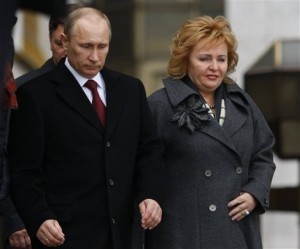Addicted to Immunity
If it were possible for opinion polls to take the place of actual voting, Vladimir Putin would be a very happy man today. Just a couple weeks ago Levada Center predicted a robust 62% of the vote, which, one would assume, would mean that the Prime Minister could confidently push through election day without stuffing ballots. There is a well established literature on why polls don’t measure up to the democratic process (people don’t always tell the truth), which is only part of the reason why it is so disappointing to see the current leadership rely so heavily on polls over the technicalities of the election results.
Yes, Putin has sufficient support to win an election without committing fraud, so why then are we almost sure to see irregularities today? Why are some opposition parties banned from registering and banished from the airwaves if, as we are told, they are laughably small and carry no public support? Evidently, this is not a person with much tolerance for any level of uncertainty.
We are told by Putin’s supporters that we can tolerate these unlawful embarrassments because, at the end of the day, Levada says he would have won anyways. The fact that we nevertheless still see fraud and manipulation speaks to the profound absence of trust in the system and the paranoia of the security service mentality that has infected the political process over the past decade. Putin does not believe in his own legitimacy, and the reckless urgency with which he is taking back presidential powers speaks to the extent of his fears over future prosecution.
But if the vote is going to be massaged, it must be done carefully in order to avoid another massive outpouring of public discontent. According to the economist Konstantin Sonin in the Moscow Times, If only 45 percent of the people vote for Putin and the authorities announce that he received 52 percent of the vote, the resulting protests will probably be relatively small. But if Putin receives only 35 percent to 40 percent of the vote but declares that he won 52 percent, the protests might be so large that the authorities would be forced to hold new elections.
The president’s political survival over the short term is going to depend on the types of concessions that he will necessarily have to make to the opposition, including the restoration of direct elections of governors and the relaxing of party registration rules. Of course, within these kinds of light reforms, the Kremlin will still be able to exercise influence, but the whole process becomes more infinitely more complicated, while at the same time the people becomes accustomed to being able to get something they want. While nobody is predicting that Putin is going to face accountability tomorrow, the endgame for his removal from power is just now becoming visible.












